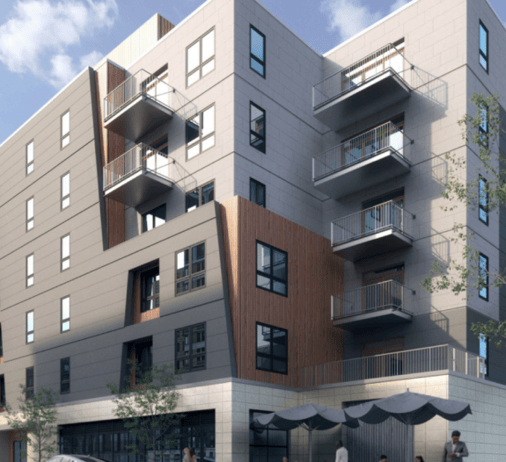Condominium Projects are on the Rise in Boston - Should You Buy One?
Congratulations! You've made the decision to buy your home rather than rent. Now, what do you buy? Most first-time buyers opt for a condominium. They are basically maintenance-free and are more affordable than a comparable single-family home. The next question is, do you buy an existing condominium or one that's in a new building or development?
As with any real estate purchase, there are pros and cons to consider. New construction surely has its advantages, but there are some pitfalls. Being aware is a good way to avoid falling into one.
The Pros Of New Condominium Construction
If driving a brand-new car off the lot gives you a feeling of euphoria, imagine what it feels like to move into a spanking new home. One where you're the first person to run the dishwasher, fire up the grill, or soak in the deep tub. Aside from the intangibles of a new home, there are financial advantages to buying new.
Unlike that new car, which substantially depreciates half a mile down the road, real estate typically appreciates over time. When you buy new, you will likely get the highest return on your investment when you sell. And the earlier you buy in a new building, the better deal you are likely to get. Why is this?
Developers rely on banks and other investors to fund their projects. And they need to hit certain benchmarks--sales--in pre-construction to make the lenders happy. So when you come in early and want to buy a condominium, you'll get the most flexibility in pricing from the builder. This is the lowest pricing available to the public (investors may buy-in at a lower price) and you should ask about it.
Another reason buyers prefer new construction is that you can customize your unit, rather than have to renovate a condominium that you buy as a resale. This means you can choose your location in the building, alter the floor plan if you like, and choose your finishes and upgrades. These are the tactile advantages, but here are the other reasons to buy new construction.
- New home warranty that covers almost anything that goes wrong for at least seven years
- New, energy-efficient appliances and HVAC systems
- You have a trendy, chic home that won't need any renovations for years
- Your condo is built to the most recent code and standards
Reasons to Consider a Resale Condominium
The primary drawback of new construction for most buyers is the timeframe. You're looking at anywhere from a couple of months to a couple of years for a new building. If your lease is up in a few months and you are ready to buy, then obviously an existing condominium is the right choice. You may have your eye on a building in your neighborhood, or find a unit that's already been renovated. There's absolutely nothing wrong with buying a condominium as a resale. Just be sure to do your due diligence on the unit itself as well as the building.
Doing Your Due Diligence
Speaking of due diligence, one thing to keep in mind as you look at condominiums and speak with their on-site agents is that these real estate agents aren't working for you, they are working for the developer. You should have your own real estate representation before you start any serious negotiations.
Look at other projects the developer has built. Are they thriving and successful, or are shabby and unkempt? Your realtor can check court records for any actions taken against a given developer if you're not sure. A good rule of thumb is to work with developers who are incorporated, and thus do business under corporate law. These companies have more incentive to build well and follow through on any post-construction issues than an LLC. Which can close up as soon as the building gets a Certificate of Occupancy.
How many units are sold?
The first thing you'll want to know is how sales are going. This matters for two reasons. Timing is everything when you're buying new construction. You might not want to be the first to sign up, but the longer you wait the less room you have to negotiate.
The new condominium market in the Boston area is sizzling. The BRIX condo project in Salem sold 30% of its units in just two weeks.
Does the developer offer financing?
A new construction loan is structured differently than a loan for an existing structure. Many condo developers work with a preferred lender, and it's worth your time to find out if they offer more competitive rates. In this market, smart buyers already have a loan pre-approved before they start serious condo shopping.
What are the HOA fees? What do they cover?
The developer should give you a detailed list of what the fees are and what's covered. Typical HOA fees pay for landscaping, lighting, maintenance of common areas (including parking), and snow removal.
This number is a starting point. Expect the fees to go up once the condo building is registered and the board is in place--usually about 10% per year. The board sets the annual fees based on the previous year's expenses. But for the first couple of years, they are learning exactly how much it costs to keep the building running. You should also budget for assessments to beef up the building reserves. These reserves will cover future repairs and the master building insurance policy requires a minimum amount.
What is the proposed city planning for the neighborhood?
Ask your realtor what the city has planned for the areas you're looking at--for the next ten years. Schools, roads, transit, any new commercial development, or rezoning that's under consideration, are relevant to your decision to purchase in that area.
When you're ready to buy a condo in the Boston area, Charlesgate Realty has some listings that we think you will love. Go online or call to schedule an appointment. But don't wait too long--we would hate to see you miss out on any of these wonderful opportunities for maintenance-free condo living.
-1.jpg)

